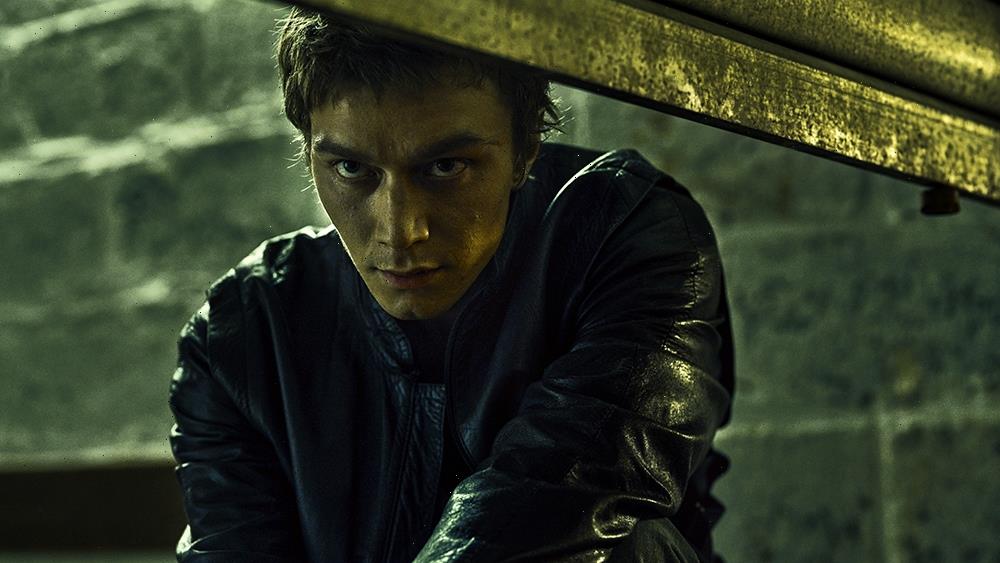The latest from Belgium’s Eyeworks Film & TV Drama and director Wouter Bouvijn – who teamed on Canneseries hits “The Twelve” and “Red Light” – “1985,” sold by Studiocanal, works on multiple levels as a coming-of-age series.
Two young Gendarmarie police recruits, Marc and Franky, and his sis Vicky, a law student and pirate radio DJ, move to Brussels. They are soon caught up in police corruption – insider drug trading, heavy fire arms robbery – and the rise of the brutal Nijvel gang.
Created by Willem Wallyn (“Albatros”), this is the coming-of-age story of three unbreakable friends loss of innocence, and that of a nation in its leaders.
It is also an origins tale, of the forging of the modern age. Belgium’s distrust of its forces of law and order and political class rankles to this day, shared now with other countries, as does its politics of confrontation which Vicky denounces in an on-air monolog in Ep. 1.
“The Twelve” won best screenplay at Canneseries in 2019, “Red Light” best acting a year later. So expectations for “1985” run high.
Variety talked to Peter Bouckaert, “1985’s” producer at Eyeworks, one of Belgium’s biggest producers, before “1985” world premieres in competition on April 3 at Canneseries.
George Orwell’s “1984” talked about 1948. “1985,” one senses, looks forward in time. It’s a coming of age tale which also explains some of the origins of the modern world. Could you comment?
1985 is set in the 1980s. The last and bloodiest raid made by the Brabant Killers took place at a supermarket warehouse on Nov. 9, 1985. The year saw the climax to the gang’s violence. There was a wave of violence across Europe, terrorism and gangsterism., an attempt, backed by American intelligence forces to stimulate forces in European societies to create awareness that the enemy was still there and that democracy couldn’t turn too soft.
The series focuses on Belgium’s para-military Gendarmie…
The aim of the series was to show how vulnerable our democracies are. You don’t need an army or a military coup to overturn democracy, just people deteriorating the democratic system from the inside, corrupting justice and legal departments and putting people in the right places who can sabotage inquiries. Looking how those elements round the world are these days destabilising democracy, that fragility remains today. What sets the Brabant Killings apart from crimes in other European countries is that they were never solved.
The veracity of many of the events, confirmed in end-title cards, endows “1985” with much of its force. Some early historical events in the series are notorious: Madani Bouhouche’s burglary of automatic weapons from a Gendarmerie barracks in 1981, for instance. But did all of the events portrayed really happen? What about the spectacular attempted assassination on Herman Vernaillen, an Gendarmarie major investigating insider drug dealing in the police force.
It really happened, and as we show it in the series. Herman Vernaillen served as a consultant on a feature film we made before “1985,” “Don’t Shoot,” inspired by the true story of a nine-year-old boy who was one of the victims of the last Brabant Killings raid. When we made the film, a lot of people involved in the events came to us with information or leads which we couldn’t use in the film, given its clear focus. So we came on the idea of making a series which could talk about the decade and its violence.

What were your and director Wouter Bouvijn’s guidelines for series direction?
We wanted it to be very cinematic, but also very, very much focused on the characters because in a series like this there’s a danger – when depicting gangsterism, guns, violence – of being overwhelmed by action scenes. Wouter wanted to stay very close to the characters so that audiences live what they are going through. Also, we wanted the style of the eighties to be very present, to add to the realism of the storytelling.
“1985” is the third series Eyeworks has had selected for Canneseries competition in just five years. What would you say is the state of Belgian drama series production and what sets it apart?
We are capable of telling stories that have local DNA but universal appeal. If you see the budgets we work with we mange for the moment to make series look much more expensive than they are. Then there’s a unique little twist to the story. And we make stories with a “hoek af,” a corner broken. There’s always something which doesn’t fit in the picture. If you look at the picture, there’s always something wrong.

Source: Read Full Article





